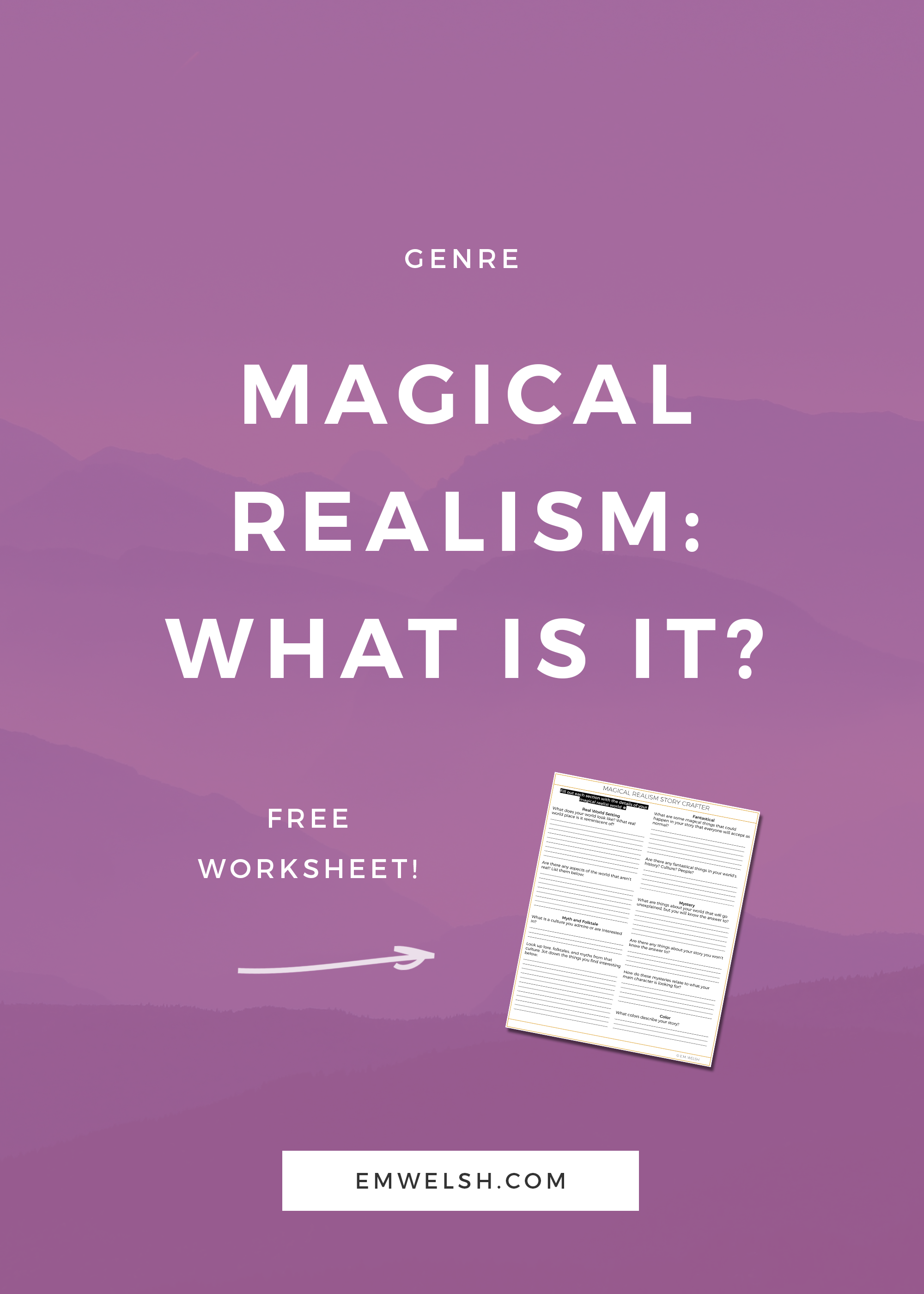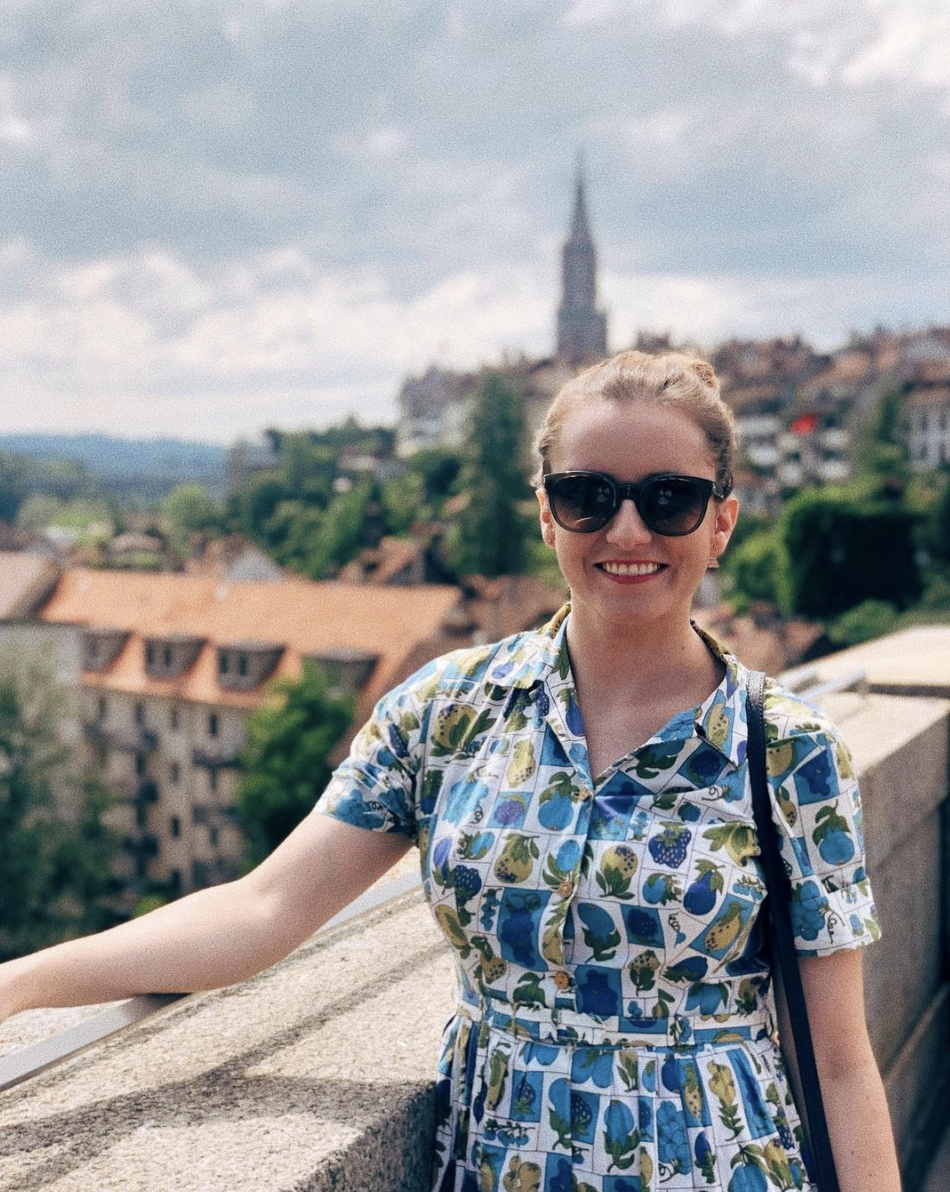Magical Realism: What is it?
/Often considered to be originated in Latin America, magical realism is a genre many people have difficulties pinning down, especially because the degree to which some authors incorporate the genre in their work varies so much. Most people's first encounter with the genre is in Gabriel Garcia Marquez's, One Hundred Years of Solitude, though there are many more authors around the world who have embraced the style. Of course, like any genre, this one is not solely constrained to literature, though that is where it is the most prominent.
As a storyteller, it is important to learn about genres, even if you do not consider yourself a genre storyteller. The more you understand different genres, the more tools you have in your storytelling arsenal to play with and explore ideas.
For the longest time I felt I was just copying other stories I enjoyed, but didn't love what I was writing. It didn't feel like me. They were all realism pieces, and while I wanted to tell a story as profound as one of Salinger's Nine Stories, I found that it never quite suited me. Writing about reality was incredibly boring but I knew I didn't have the commitment or love of fantasy to delve into that genre. It wasn't until I unearthed the magical realism genre that I realized what type of writer I was and was able to truly begin crafting stories I enjoyed telling.
This is not to say I only write magical realism pieces, but that by trying out that genre my creative reach became wider and I felt in touch with who I really was. Because of this, I believe that every storyteller needs to dabble in other genres, because who knows? Maybe you're storytelling voice is buried somewhere you've never been before!
Defining Magical Realism
According to the The Greenwood Encyclopedia of Folktales and Fairy Tales, magical realism is defined as "a mode of writing that seamlessly fuses a realistic representation of everyday phenomena and events with fantastic or magical elements." At first this definition seems very straightforward, that is until one becomes to compare magical realism to fantasy or surrealism. To the reader or viewer, these differences are inconsequential - they either like it or they don't. Therefore it seems the confusion lies within the storyteller, especially the one who wants to tell a story in the magical realist genre and not fantasy.
This confusion, admittedly, is a personal one I have struggled with greatly in my own novel. When people would ask me what my novel was about, I would give them a brief summary as best I could and they would nod and then say, "So a fantasy novel?" As soon as I began to get this feedback, I knew I had to change something. It is important to remember as a storyteller that any feedback from readers or viewers or whatever they are, whether it sounds stupid or not, is still something to consider. If they think you wrote a science fiction novel and you were going for steampunk, that is a sign that you as the storyteller are doing something wrong, not that they are a fool. So with that notion in mind, if you are in a place where you want to tell a magical realism story, the better you know the genre, the less likely someone will consider your work to be purely fantasy or science fiction, though it is worth noting that some people blend these genres and do it very well.
Traits of Magical Realism
Real World Setting
Magical realism is almost always rooted in a real place, though like in Wizard of the Crow or One Hundred Years of Solitude, it can often be a made-up city or town within the real world that is treated as if it had always been there. For me, this is what distinguishes the genre more than anything from fantasy, where the entire world is usually completely made-up.
Myth and Folktale
This can be used in various ways, whether it is by referring to myths and folktales that already exist, or by writing in such a way that folktales might be told. This is one of my favorite aspects of the genre because it gets to the core of storytelling - when it used to be told by word of mouth! I often keep this attribute in mind when writing my magical realist novel to play with narration.
Fantastical Attributes
The most extensive aspect of the genre, magical realism incorporates what might be deemed superstitious or mythological and makes it real, though oftentimes consumers of the story are left wondering whether things actually exist, they are just metaphors, or if its all psychological. However, whatever it appears to be, it is treated as an everyday occurrence. Various examples include Toru, in The Wind-Up Bird Chronicle, sitting at the bottom of a well for days on end or Riggan flying around Manhattan as Birdman in Birdman. It is this aspect of the genre that I believe makes it hard for it to translate to other modes of storytelling. In literature, there is lots of wordplay at hand and nearly everything exists in the reader's mind. Because of this, there is more room for mysticism. In the other mediums, however, this mysticism becomes more difficult because the story is being presented to someone visually so that anything mystical is either taken to be fact or fiction on the spot. Despite this, films like Birdman and Pan's Labyrinth achieve this well by honing in on one character psychologically and therefore so can you!
Mystery
The mystery in magical realism, though central to the conflict, often is not highlighted to such a degree as it might be in a mystery novel. Additionally, at times many mysteries may not have an answer at all, like the insomnia in One Hundred Years of Solitude. Whatever the mystery is, however, it often is what sets the character on their journey and hints at something missing in the character's life. However, compared to the Hero's Journey, their journey is far more passive and given to waiting and wandering. Haruki Murakami does this very well in all of his books, with many of his characters roaming about for pages on end in search of answers they just happen upon in a dream or in a strange woman at a bar. Their mysteries often hint at the void in their life - it's usually a female connection for Murakami - and by the end of the book the mystery is resolved, oftentimes filling the void they have felt for the story, though this is not necessary, just like resolving the mystery is not necessary so long as there is one.
Color
When you look up magical realism traits, you will not find this trait listed and it is by no means a scholarly or literary assessment, but it is a trait I see in every piece all the same. Now of course, I don't mean literally, as there are stories like Beloved that are dark and tragic but still fit the magical realism genre. What I mean is that when I am engaged with a magical realist story, everything is vivid. Things may be upsetting, yet they remain bright in their realizations till the very end, be it via description, dialogue, or the colors of the piece itself in the case of film. It is not to say everyone is constrained to one way of telling this aspect of the story in magical realism, but that there is always lots of life in the piece. Even when characters are doing absolutely nothing, the world around them should be fully realized, and that is because when writing magical realism you work with the real-world as a backdrop, and all the abnormalities are able to really flourish. Try to keep this in mind when telling your own magical realism stories - every new detail that makes your world magical should bring it life and color.
How is it different from...?
Now that we understand what traits make up the genre, it is time to compare those traits to other genres storytellers often confuse them with.
Fantasy
As mentioned before, magical realism takes elements of fantasy and makes them rooted in our sense of reality, whereas fantasy creates an entirely new reality. I have yet to see dragons or elves in a magical realism piece, but it is worth noting that both genres are rooted in fables and myths, so their narration styles can often be very similar.
Science Fiction
While both science fiction and magical realism are rooted in reality, science fiction usually presents itself as a version of our world in the future or some alternate universe completely, but it is never rooted in our current reality, always an altered one. Aspects of the world are explained and occasionally backed by scientific fact - or at least some made-up version of fact. Most post-apocalyptic stories fall into this category as well, though even if they do not they are usually not magical realism stories.
Surrealism
The difference between magical realism and surrealism is quite tricky, especially because they both all exist as forms of art. When watching Dalí and Buñuel's Un Chien Andalou, it is easy to mistake the style for being magical realist. However, the biggest difference between the two genres is that surrealism is concerned with dreams and imagination, whereas magical realism focuses on playing with the physical realities of the world. Having seen many experimental surrealist films in college, I can say that if you were to watch a surrealist film and then watch a magical realist film, you would easily be able to tell the difference between the two.
Examples of Magical Realism
Still not sure you've grasped the genre? Try looking at some examples for your preferred mode of storytelling!
Films:
Midnight in Paris
Birdman
The Purple Rose of Cairo
Pan's Labyrinth
Big Fish
Plays:
One Flea Spare by Naomi Wallace
Angels in America by Tony Kushner
Marisol by José Rivera
The Clean House by Sarah Ruhl
Books:
One Hundred Years of Solitude, Love in the Time of Cholera, anything by García Márquez
Like Water for Chocolate by Laura Esquivel
The Wind-Up Bird Chronicle by Haruki Murakami
The Wizard of the Crow by Ngũgĩ wa Thiong'o
Beloved by Toni Morrison
Midnight's Children by Salman Rushdie
Video Games:
Papa & Yo
Unfortunately, since video games are a newer medium, there are very few magical realism stories available. However, that being said I have written a quest for my very own magical realism video game I hope to one day make and would love to talk to video game writers who need help grasping how to incorporate the genre into their work. You can reach me here!
I hope you have found this article helpful and that it inspires you to try out your own magical realist story! If you just want to practice with the genre, my favorite way to get ideas is by looking up magical realist paintings and then writing a story about them. Rob Gonsalves, Michael Parkes and Rafał Olbiński are some of my favorites to work with and a great place to start.
Do you have a favorite magical realism story? Are you telling one of your own? Let me know in the comments below!


